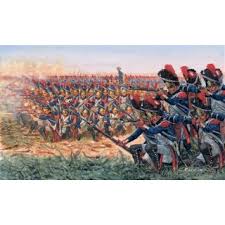The Enduring Legacy of Napoleon Bonaparte

Introduction
Napoleon Bonaparte remains one of history’s most influential figures whose actions shaped the course of Europe and the world. His legacy is marked by military campaigns, legal reforms, and the spread of nationalism. Understanding Napoleon’s impact is vital for comprehending contemporary European political and social structures.
Napoleon’s Rise to Power
Napoleon rose to prominence during the French Revolution, eventually becoming Emperor of the French in 1804. His military acumen allowed him to dominate European warfare, leading to substantial territorial expansion for France. Notably, the Napoleonic Wars (1803-1815) saw him face off against various coalitions formed by European powers, drastically changing the political landscape of the continent.
Significant Reforms
Beyond his military exploits, Napoleon is credited with numerous reforms that had long-lasting effects on French society and governance. The Napoleonic Code, established in 1804, was pivotal in modernizing the legal framework of France and served as a model for legal systems worldwide. His administration also fostered educational reforms, the establishment of the Bank of France, and support for the arts and sciences, which contributed to France’s cultural resurgence.
Impact on Europe
Napoleon’s conquests instigated a rise in nationalist sentiments across Europe. As he introduced reforms in the territories he controlled, subjects often found themselves torn between loyalty to their local governance and admiration for the progressive reforms ushered in by the Napoleonic regime. This duality led to a significant shift in European national identities and, eventually, the unification movements in Italy and Germany later in the 19th century.
Conclusion
The fall of Napoleon in 1815 did not diminish his imprint on history. The Congress of Vienna sought to restore order in Europe but could not erase the changes brought about by his rule. Today, historians and political scientists continue to examine Napoleon’s strategies, ideologies, and reforms to better understand their lasting influence on modern Europe. As nations grapple with concepts of statehood and governance, learning from Napoleon’s legacy remains crucial for engaging critically with contemporary issues in both national and international contexts.









